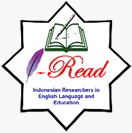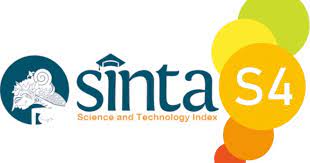Improving Students’ Vocabulary Through Paper-Mode Quizizz: A Classroom Action Research in Indonesian EFL setting
DOI:
https://doi.org/10.22219/englie.v4i1.24832Keywords:
Improving, Paper-Mode Quizizz, VocabularyAbstract
Vocabulary is an essential component in learning a second or a foreign language. It is one of the most important aspects of obtaining all four language skills; reading, listening, speaking, and writing. Therefore, teaching and learning vocabulary should be done through various-interactive media so that children are interested in acquiring it. Integrating gamefication-based learning media can be utilised to support the teaching-learning vocabulary. In addition, Paper-Mode Quizziz can be used as a game-based learning platform offering multiple tools to make a classroom fun, interactive, and engaging in learning vocabulary. This research aimed at investigating the use of Paper-Mode Quizizz to improve students’ vocabulary at eighth grade students. This research was Classroom Action Research conducted at eighth grade students. The research subject was 8C grade students of SMP SSA Negeri Kloposawit 1 Candipuro. Further, this research was conducted in two cycles. In cycle I, the researcher found that the eighth-grade students’ vocabulary mastery was improved. The average score was 72,4. Further, in cycle II, the eighth-grade students’ vocabulary mastery was much better than in cycle II. the average score was 81,4. It showed that the use of Paper-Mode Quizizz profoundly improved the eighth-grade students’ vocabulary mastery. In addition, the students were more enjoyed, actively participated, highly motivated, and engaged with the use of Paper-Mode Quizizz in learning new vocabularies. In short, the implementation of Paper-Mode Quizizz profoundly improved the students’ vocabulary mastery at eighth-grade students in learning English.
Downloads
References
Arsyan, A. A. (2022). The Implementation of Quizizz in Vocabulary Learning Activities: Efl Students’ Perception and Motivation. Research on English Language Teaching in Indonesia, Volume 10, Number 01, pg 172-178
Boulden, D. C., Hurt, J. W., & Richardson, M. K. (2017). Implementing digital tools to support student questioning abilities: A Collaborative Action Research Report. Inquiry in Education, 9(1).
Garpersz, S., & Uktolseja, L. J. (2020). The use of serial picture media to improve english speaking ability at SMP YPK Syaloom Klademak Sorong City. Jurnal Pendidikan Bahasa, 7(2), 36–45
Groening, C., & Binnewies, C. (2019). Achievement unlocked!”—The impact of digital achievements as a gamification element on motivation and performance. Computers in Human Behavior, 97. https://doi.org/10.1016/j.chb.2019.02.026
Haryadi, R., & Pujiastuti, H. (2020). PhET simulation software-based learning to improve science process skills. Journal of Physics: Conference Series, 1521(2). https://doi.org/10.1088/1742- 6596/1521/2/022017
Kingsley, T. L., & Grabner‐Hagen, M. M. (2018). Vocabulary by gamification. The Reading Teacher, 71(5), 545-555
Lopez, C. E., & Tucker, C. S. (2019). The effects of player type on performance: A gamification case study. Computers in Human Behavior, 92. https://doi.org/10.1016/j.chb.2018.10.005
Maria, D & Deli, N. (2021). Merdeka Belajar in Pandemic: Using Quizizz Game Based Learning to Improve Students’ Vocabulary Mastery. Department of Lingusitics, Faculty of Humanities: Diponegoro University
Nila, K & Mukminatus. (2021). Using Quizizz Game to Improve Students’ Vocabulary Mastery in Grade III at MTs Ibnu Rosyad. Universitas Hasyim Asya’ri.
Renandya, W.A, & Richards, J.C. (2002). Methodology in Language Teaching. New York: Cambridge University Press.
Staehr, L. S. (2008). Vocabulary size and the skills of listening, reading and writing. The Language Learning Journal 2, 38 (2), 139–152.
Thornbury, Scott. (2002). How to Teach Vocabulary. London: Longman.
Zhao, Fang. (2019). Using Quizizz to Integrate Fun Multiplayer Activity in the Accounting Classroom. International Journal
Zou, D., Huang, Y., & Xie, H. (2019). Digital game-based vocabulary learning: Where are we and where are we going? Computer Assisted Language Learning, 1-27
Downloads
Published
How to Cite
Issue
Section
License
Copyright (c) 2023 Rizal Wahid Permana Putra

This work is licensed under a Creative Commons Attribution-ShareAlike 4.0 International License.
Authors who publish with English Learning Innovation (englie) agree to the following terms:
- For all articles published in English Learning Innovation (englie), copyright is retained by the authors. Authors give permission to the publisher to announce the work with conditions. When the manuscript is accepted for publication, the authors agree to automatic transfer of the publishing right to the publisher.
- Authors retain copyright and grant the journal right of first publication with the work simultaneously licensed under a Creative Commons Attribution-ShareAlike 4.0 International License that allows others to share the work with an acknowledgement of the work's authorship and initial publication in this journal.
- Authors are able to enter into separate, additional contractual arrangements for the non-exclusive distribution of the journal's published version of the work (e.g., post it to an institutional repository or publish it in a book), with an acknowledgment of its initial publication in this journal.
- Authors are permitted and encouraged to post their work online (e.g., in institutional repositories or on their website) prior to and during the submission process, as it can lead to productive exchanges, as well as earlier and greater citation of published work (See The Effect of Open Access).
This work is licensed under a Creative Commons Attribution-ShareAlike 4.0 International License.
















1.png)












